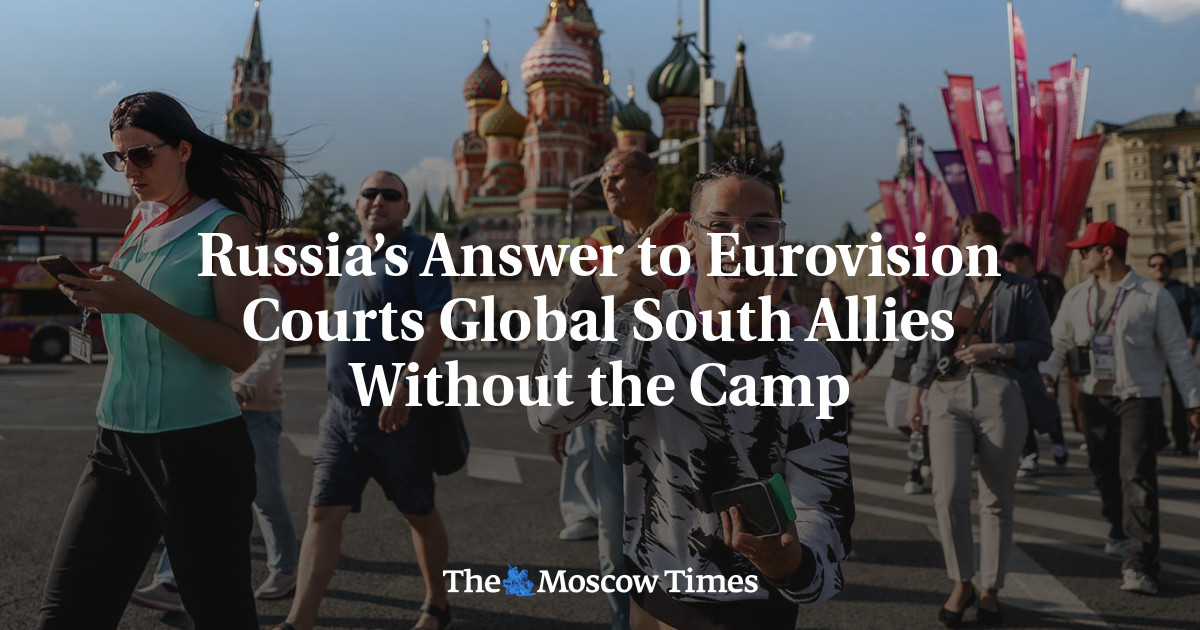
Russia’s Answer to Eurovision Courts Global South Allies Without the Camp
How did your country report this? Share your view in the comments.
Diverging Reports Breakdown
Russia’s Answer to Eurovision Courts Global South Allies Without the Camp
Twenty-three musical acts from Russia’s allies in Latin America, Africa and Asia are set to take the stage in Moscow this Saturday night. Russia’s entry will be Shaman, a pro-war pop star whose patriotic anthems like “Ya Russky” and “Moi Boy” (“My Fight”) have made him one of wartime Russia’s most visible celebrities. The spectacle promises to be a far cry from the diversity and inclusion that Eurovision fans have come to expect.
Billed as a “depoliticized” celebration of music, the event nonetheless comes in response to Russia’s exclusion from Eurovision after the invasion of Ukraine. And with Moscow doubling down on its campaign for “traditional values,” the spectacle promises to be a far cry from the camp, diversity and inclusion that Eurovision fans have come to expect.
Russia’s entry will be Shaman, a pro-war pop star whose patriotic anthems like “Ya Russky” (“I’m Russian”) and “Moi Boy” (“My Fight”) have made him one of wartime Russia’s most visible celebrities.
He represents a stark contrast from Russia’s last Eurovision appearance in 2021, when Tajik-born singer Manizha performed “Russian Woman,” a song that preached an inclusive and feminist idea of what it means to be a woman in Russia. The song was heavily criticized by the government at the time. Manizha, who later denounced the invasion of Ukraine, has since been barred from performing in Russia.
What is Intervision and why revive it now?
Intervision was first staged in Czechoslovakia from 1965 to 1968 as a festival “explicitly designed to bring east and west together,” according to historian Dean Vuletic. Poland briefly revived it between 1977 and 1980, drawing performers from as far afield as the United States, Canada and Japan.
“They wanted to attract the interest of Western commercial record companies. It’s not like they were communists who wanted nothing to do with capitalism,” Vuletic told The Guardian.
Russia’s first modern-day effort to revive the competition came in 2009, when then-Prime Minister Vladimir Putin proposed a version involving members of the Shanghai Cooperation Organization.
